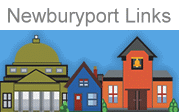|
Moving Tips |
Selling Tips
| Common Mistakes
Sellers Make |
Tips on Buying a
Home
Tips on Buying a Home
If you're thinking about buying a home, you'll want to
carefully choose the real estate professional you work
with during the process.
You should commit yourself to working with one sales
associate who can learn your likes and dislikes in homes
to make your home-buying process easier. Choose a
professional who specializes in residential real estate
and who has specific knowledge of the local real estate
and mortgage markets.
The person you choose should listen to you and be
interested enough in you to find out about your housing
needs and preferences. Service first should be the motto
of the professional you choose with services going above
and beyond what you expect and need. Doing some
preliminary planning before you begin your home search
will make the entire process more manageable and less
overwhelming. As part of your initial game plan, you
should:
Check your credit rating

Even if you're sure you have excellent credit, it's wise
to double-check at the outset. Straightening out any
errors or disputed items now will avoid troublesome
holdups down the road when you're waiting for mortgage
approval.
You may see disputed items, in addition to errors caused
by a faulty social security number, a name similar to
yours, or a court ordered judgment paid off that hasn't
been cleared from the public records. If such items
appear, write a letter to the appropriate credit bureau.
Credit bureaus are required to help you straighten
things out in a reasonable time (usually 30 days).
TIP: Make sure that any outdated derogatory
entries are deleted from your credit file. Adverse
credit information is not supposed to be reported or
included on your credit report after seven years (except
bankruptcy information, which can be reported up to 10
years).
TIP: Officially cancel inactive credit cards. If you
have an inactive credit card with a $5,000 limit, even
though you owe nothing on it, some mortgage lenders will
consider that a potential future debt. Too many inactive
credit cards with significant credit limits could keep
you from obtaining a mortgage loan. Don't just cut up
your extra cards; officially cancel them, and do it now
so there will be time for the news to reach the credit
bureaus.
TIP: Hold off on making any major credit card or car
purchases while you're waiting to apply for a mortgage.
Monthly payments you're obligated to pay will be counted
against you, and reduce the amount of the mortgage loan
you'll be offered. Even if you've been pre-approved for
a mortgage, that approval is subject to last-minute
evaluation of your financial situation, and a spending
spree for appliances, furniture and other goodies
intended for your new home may wreck your chances for
buying it.
Pre-qualification and
pre-approval on a mortgage
A real estate professional can help "pre-qualify" you
for a mortgage before you start house-hunting. This
process includes analyzing your income, assets and
present debt to estimate what you may be able to afford
on a house purchase. Mortgage brokers, or a lender's own
mortgage counselors can also calculate the same sort of
informal estimate for you.
Obtaining mortgage "pre-approval" is another thing
entirely. It means that you have in hand a lender's
written commitment to put together a loan for you
(subject only to the particular house you want to buy
passing the lender's appraisal).
Pre-approval makes you a strong buyer, welcomed by
sellers. With most other purchasers, sellers must tie
the house up on a contract while waiting to see if the
would-be buyer can really obtain financing.
The down side is that you may pay application fees to
cover the lender's paperwork in verifying your
employment, income, assets, debts and credit rating. If
you later decide not to use that particular lender,
you'd have to start all over again elsewhere - with no
rebate.
Pre-approval will also speed up the entire mortgage
procedure once you've found the house you want. The only
remaining question will be whether the house will
"appraise" for enough to warrant the loan.
Become an educated buyer:
-
The web is one of the best
ways to search for homes today. With this website, you
can receive daily emails with new and updated listings
from the towns and price range of your choice.
-
Search the entire MLS for
all homes, condos, land, multi family, commercial
properties, and past solds at your convenience.
-
View full listing sheets
showing amenities, taxes, lot sizes, beds, baths,
rooms, siding, fireplaces, garages, room sizes and
much more.
-
Get property address and
see where the properties are located with maps.
-
Check schools and
community profiles of your preferred towns.
-
Save preferred listings in
your own file to view anytime.
-
Calculate approximate
mortgage payments for specific properties.
-
Click here to sign
up now
Home Inspection
Once you have made an offer on a home, you will need to
schedule a home inspection, conducted by an independent
authorized inspector. It is extremely important to hire
a reputable inspector so that you know exactly what you
are buying. Do not hesitate to ask friends, family, and
co-workers for advice. If you are satisfied with the
results of the inspection, then you can proceed to the
Purchase and Sales agreement. If the inspector finds
problems with the property, you may want to negotiate
with the seller to lower the price, or to pay for
certain repairs.
Appraisal
Your lender may require you to get an appraisal of the
house you want to buy, to make sure it is worth the
money that you are borrowing. You may select your own
appraiser, or you may ask your real estate broker to
help you with this task.
Homeowner's Insurance

Lenders require that you have homeowners insurance, to
protect both your interests and theirs. Like everything
else, be sure to shop around for insurance that fits
your needs.
Settlement or Closing
Finally, you are ready for the closing. Be sure to read
everything before you sign! You should have both your
real estate broker and an attorney present at the
closing to ensure that all is in order.
Finally make sure before you
buy
Making sure you end up with the right home involves
figuring out exactly what features you need, want and
don't want in a home. Before starting your search, you
should make a "wish list" to decide which features are
absolutely essential, which are nice "extras" if you
happen to find them, and which are completely
undesirable.
The more specific you can be about what you're looking
for from the outset, the more effective your home search
will be. Also keep in mind, that in the end, every home
purchase is a compromise.
Create your own personalized "wish list" and when you're
finished filling it out, share it with your real estate
agent.
To contact me, click here
Moving Tips |
Selling Tips
| Common Mistakes
Sellers Make |
Tips on Buying a
Home |











